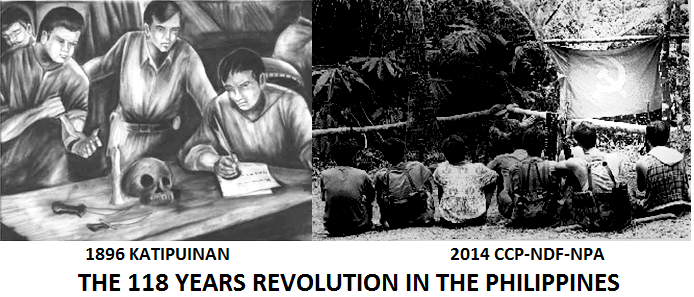News Release
April 12, 2014
April 12, 2014
References: Bayan Muna Rep. Neri Colmenares, 09178350459
Bayan Muna Rep. Carlos Isagani Zarate, 09177174014
BAYAN MUNA CONDEMNS MAD RUSH FOR THE RETURN OF US BASES
Says it is already studying option to question new US-PH deal at the SC
Says it is already studying option to question new US-PH deal at the SC
 |
| Protesters display placards and banners as they march towards the gates of the U.S. Embassy during a protest in Manila, July 4, 2013. (Photo: Reuters) |
Bayan Muna Reps. Neri Javier Colmenares and Carlos Isagani Zarate today said that it is beyond doubt that the Aquino administration is in a mad rush to complete the sell out of Philippine sovereignty through the Agreement on Enhanced Defense Cooperation (AEDC) when United States of America Pres. Barack Obama arrives in April 28.
Rep. Colmenares charged that the AEDC will practically bring back US military bases in the Philippines without a treaty, without rent and without limits as the American may use all Philippine military facilities - an arrangement worse than the Bases Treaty rejected by the Philippine Senate in September 1991.
“Simply put, it is like a dog’s welcome gift to his master. They are trying to move heaven and hell so that Obama would be here for the signing of the AEDC; coupled with pro-imperialist charter change, would again make the Philippines a full pledged American colony,” said the senior deputy minority leader.
“Even if they say that “key provisions and modalities of the AEDC would reflect, among others, full respect for Philippine sovereignty, nonpermanence of US troops and no US military basing in the Philippines and a prohibition against nuclear weapons, we all know that these can be circumvented by the fact that in reality it is the US government is the one calling the shots and not the Aquino administration,” said Rep. Colmenares.
“Case is point is the supposed no US military basing provision; but the US can say that it would fund the construction of Philippine bases in every province in the country and under the AEDC they are allowed to use all these bases. So technically they do not own the base but it is practically an American base. This would also be the framework for the existing bases, in paper it is a Philippine base but in reality it is a US base,” said Rep. Colmenares.
Meanwhile Rep. Carlos Zarate said that “another point is the supposed prohibition of nuclear weapons, but we know that even if the US respects and observes this prohibition it can still bring other types of weapons of mass destruction that would make us a prime target of US enemies,”
“Furthermore, they already found a way to circumvent the constitutional ban on the presence of foreign troops in the country thru the Visiting Forces Agreement (VFA) but now they will further maximize this and increase US troop presence in the country. So in truth the AEDC is a very deceptive deal,” said the progressive solon.
“This early we are already studying the option of questioning the AEDC at the Supreme Court because it is a clear violation of our Constitution particularly Sections 3 and 7 and possibly Section 8 of Article II. We are also of the position that this is not a mere executive agreement but a treaty and should be scrutinized by the Senate and the House of Representatives,” added Colmenares.
“We must learn from history that the Filipino people ousted the bases in 1991 not only because its presence violates our sovereignty but they were also magnets for attack from the many enemies of the United States. The presence of US troops here will increase the tension in the region and threatens its stability. We do not want to become another Iraq where the US troops remained even if Saddam Hussein has long been dead. We should stand against China’s bullying but we should get the support of the international community instead of the US,” ended Rep Colmenares.###
 |
| US Naval base at Subic Bay |




.jpg)


.jpg)